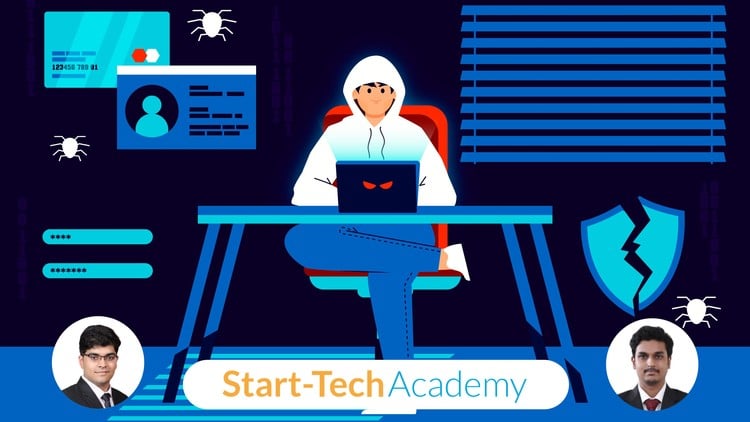
Master LLM Security: Penetration Testing, Red Teaming & MITRE ATT&CK for Secure Large Language Models
⏱️ Length: 3.4 total hours
⭐ 4.45/5 rating
👥 5,591 students
🔄 May 2025 update
Add-On Information:
Note➛ Make sure your 𝐔𝐝𝐞𝐦𝐲 cart has only this course you're going to enroll it now, Remove all other courses from the 𝐔𝐝𝐞𝐦𝐲 cart before Enrolling!
-
- Develop a strategic ‘hacker’s intuition’ for the unique vulnerabilities of Generative AI applications, moving beyond conventional security paradigms to understand how adversaries exploit LLM-specific weaknesses in real-world scenarios. This encompasses anticipating attack surfaces not present in traditional software and recognizing the subtle cues of an exploited model.
- Master the nuanced art of adapting established penetration testing methodologies to the dynamic and often unpredictable nature of large language models. Learn to identify and exploit vulnerabilities that arise from model architecture, training data, inference processes, and integration patterns, not just common web application flaws.
- Gain practical experience in designing and executing sophisticated red teaming exercises specifically targeting LLM-powered systems. This involves simulating advanced persistent threats to uncover hidden security blind spots, assess an LLM’s resilience under adversarial pressure, and reveal risks before they manifest in production.
- Acquire the critical ability to devise and implement advanced adversarial testing strategies that expose inherent biases, ethical risks, and potential for harmful content generation within LLMs. Understand why standard performance benchmarks are inadequate for GenAI security and how to build more effective, security-centric evaluations.
- Deepen your understanding of how complex attacks like advanced prompt injection, data poisoning, and model inversion can lead to catastrophic data breaches, intellectual property theft, or operational disruption. Focus on the sophisticated methodologies attackers use to achieve these outcomes and the potential chain reactions they trigger.
- Learn to proactively construct robust defensive postures for LLMs, leveraging a deep comprehension of the MITRE ATT&CK framework adapted for AI systems. This includes developing comprehensive mitigation strategies against evolving threat landscapes, ensuring the integrity, confidentiality, and availability of your AI assets.
- Cultivate expertise in identifying and neutralizing emerging model-specific threats such as excessive AI agency leading to unauthorized actions, the subtle exfiltration of sensitive information through LLM outputs, and vulnerabilities arising from insecure integration patterns. Focus on the practical steps to prevent and respond to these novel risks.
- Develop the essential skill of translating complex technical exploitation findings into clear, actionable security recommendations for diverse stakeholders, ensuring effective risk communication and prioritization of remediation efforts. This bridges the gap between technical discovery and business-oriented decision-making.
- Bridge the critical knowledge gap between traditional cybersecurity and the rapidly expanding domain of AI security, future-proofing your professional skill set and positioning yourself as a specialist in securing next-generation technologies. Become an indispensable asset in the era of pervasive AI.
- PROS:
- Highly practical and hands-on curriculum: Emphasizes real-world attack simulations and techniques, providing tangible skills immediately applicable in the field.
- Addresses a cutting-edge and critical security domain: Positions learners at the forefront of AI security, a rapidly growing area with high demand for specialized expertise.
- Strategic blend of offensive and defensive tactics: Equips students with a holistic understanding of how to both exploit and secure LLM systems effectively.
- Career-accelerating specialization: Offers a unique skill set crucial for cybersecurity professionals looking to transition into or advance within AI-focused roles.
- CONS:
- Relatively short duration for a complex topic: While efficient, the 3.4-hour length suggests a highly condensed learning experience, which might require learners to supplement with additional self-study for deeper mastery of certain concepts.
Learning Tracks: English,IT & Software,Network & Security
Found It Free? Share It Fast!